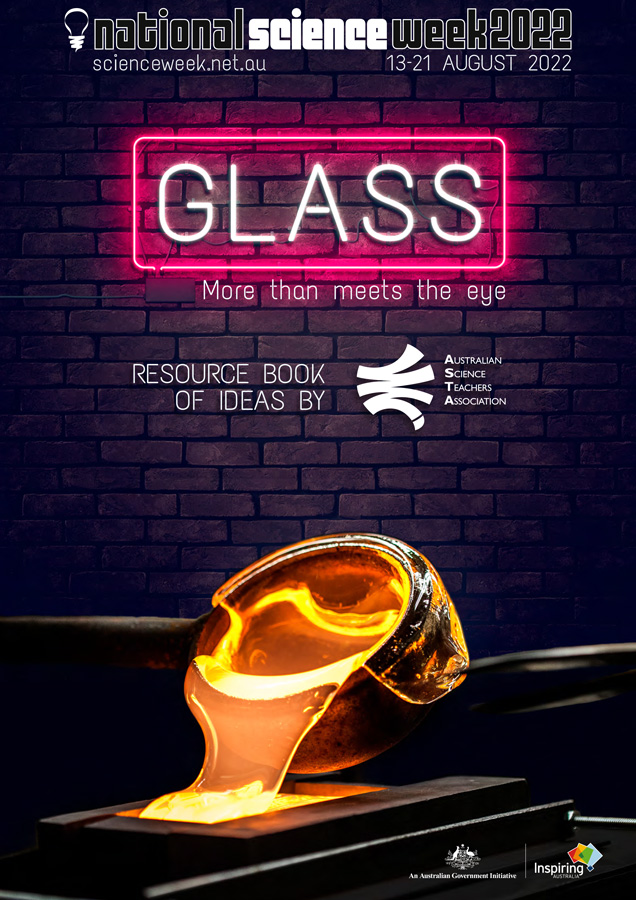Schools
We work with the Australian Science Teachers Association to provide grants to schools and to create imaginative teaching resources each year.
There are lots of ways you can get your school and wider community involved in National Science Week. Your participation can be as simple as a display in the school library or a Brain Break quiz, or as complex as a whole-school science fair.
Here are some hints and tips (484 kB, pdf) for holding a great National Science Week event at your school.
Science Week 2025
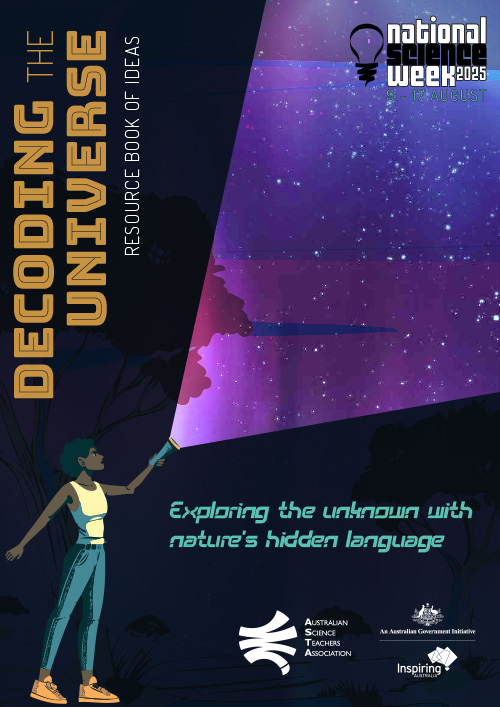
The school theme for National Science Week in 2025 is Decoding the Universe – Exploring the unknown with nature’s hidden language. This theme invites students and teachers across Australia to delve into the mysteries of the Universe by exploring the fundamental languages of nature, including mathematics and the groundbreaking field of quantum science.
Aligned with the 2025 United Nations International Year of Quantum Science and Technology and the 2025 International Mathematical Olympiad (IMO) being hosted in Australia, this theme serves as a bridge between basic science education and the exploration of specialised topics. “Decoding the Universe” will empower educators to inspire and engage students by exploring the mathematics and quantum science that underpin both the natural world and the modern technologies we use every day, from photosynthesis to satellite navigation.
School grants
Grants of up to $500 are provided to support National Science Week activities in schools and preschools.
The four criteria that the applications are ranked against are the:
- likely impact of proposed activity on student learning outcomes in STEM;
- contribution to the ongoing and increased student participation and engagement in school STEM programs;
- practicality and scope of proposed activity; and
- potential for parent and/or community and/or neighbouring school/s involvement.
The grants are administered by ASTA and the grant pool of $110,000 is provided by the Australian Government.
You can apply HERE. Applications close Saturday 26th April, 2025.
Teaching Resource Book
The 2025 teacher resource book exploring the theme Decoding the Universe – Exploring the unknown with nature’s hidden language is now live! Download the resource book and student journal here.
These resources are packed with information, classroom activities, experiments, diagrams, photographs, and website links.
Science Week 2024
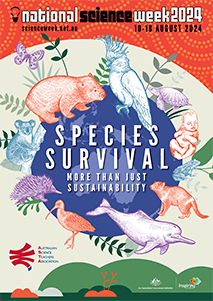 The school theme for National Science Week in 2024 is Species Survival - More than just sustainability. The theme aims to highlight the importance of science and innovation in ensuring the survival and thriving of different species in an ever-changing world.
The school theme for National Science Week in 2024 is Species Survival - More than just sustainability. The theme aims to highlight the importance of science and innovation in ensuring the survival and thriving of different species in an ever-changing world.
Students will have an amazing variety of topics to investigate, and be able to dive into issues of particular interest to them: disease-causing organisms, life-saving chemicals, clean water, photosynthesis, genetic screening, physics of building structures, artificial intelligence, and microplastics.
School grants
Grants of up to $500 are provided to support National Science Week activities in schools and preschools.
The four criteria that the applications are ranked against are the:
- likely impact of proposed activity on student learning outcomes in STEM;
- contribution to the ongoing and increased student participation and engagement in school STEM programs;
- practicality and scope of proposed activity; and
- potential for parent and/or community and/or neighbouring school/s involvement.
Be sure to read all of the terms and conditions before applying online via the Australian Science Teachers Association (ASTA) website. Applications close on 12 April 2024.
The grants are administered by ASTA and the grant pool of $110,000 is provided by the Australian Government.
Teaching Resource Book
Download the free Species Survival teacher resource book (17.5 MB, pdf) and the companion student journal (4.8MB, pdf). There is also a flipbook version of the resource book. A listing of the web links in the book is also available if you are using a printed copy of the book.
Google Classroom Activities for NSW Public teachers
Google for Education has adapted and digitised ASTA's Species Survival resource book for Google Classroom! Available for anyone with an @education.nsw.gov.au account.
School Poster
The Species Survival - More than just sustainability A3 poster for 2024 is available to download and print (6 MB, pdf).
Science Week 2023
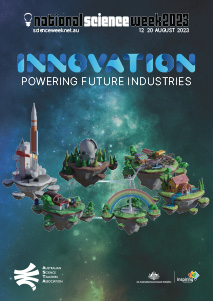 The school theme for National Science Week in 2023 is Innovation: Powering Future Industries. The theme incorporates the advancement in technology in all industries, especially using artificial intelligence (AI).
The school theme for National Science Week in 2023 is Innovation: Powering Future Industries. The theme incorporates the advancement in technology in all industries, especially using artificial intelligence (AI).
The curriculum focus of the theme is on:
- Science as a Human Endeavour
- Chemical Sciences
- Physical Sciences
- Earth and Space Sciences, and
- Biological Sciences.
Along with the Sustainability cross-curriculum priority, it is versatile and accessible to all students and teachers.
Student investigations could include the use of AI in industry, as well as recent advancements in renewal energy technology, data science, and environmental monitoring. With topics of interest from medicine to marine research, agriculture, climate change and mining there are opportunities to engage with the theme from a variety of perspectives.
Teaching Resource Book
Download the 70 page 2023 teacher resource book Innovation: Powering Future Industries (14.4 MB, pdf). You can also use a flipbook version of the resource book. The web links in the book are available if you are using a printed copy of the book.
There is also a companion student journal (1.9 MB, pdf).
School Poster
The Innovation: Powering Future Industries A3 poster is available to download and print (6 MB, pdf).
School Grants
Congratulations to the 257 recipients of school grants for this year.
The grants are administered by ASTA and the grant pool of $110,000 is provided by the Australian Government.
Science Week 2022
The school theme for National Science Week in 2022 was Glass: More than meets the eye. It is based on the UN International Year of Glass. It will celebrate the many roles that glass plays in our lives – from phone screens to optical fibre to glassware in labs – plus investigating glass as a part of our sustainable future. The uses for and intrinsic nature of glass in science make it a suitable topic for investigation across all strands of science education.
Teacher Resource Book
The Glass: More than meets the eye teacher resource book (11.5 MB, pdf) was published by ASTA in March and has lesson plans, activities, demonstrations, Indigenous and historical perspectives and curriculum links for teachers of classes from Foundation to Year 10. Did you know that honey turns into an amorphous solid, ie glass, at -50 °C? Or that adhesive made from spinifex resin is also a form of glass?
The web links in the book are available if you are using a printed copy of the book.
There is also a companion student journal (4.2 MB, pdf) available.
Glass: More than meets the eye Poster
The Glass: More than meets the eye A3 poster is available to download and print (5.9 MB, pdf).
School grants
Applications closed on 29 April and the results of the round were announced on 18 May.
Science Week 2021
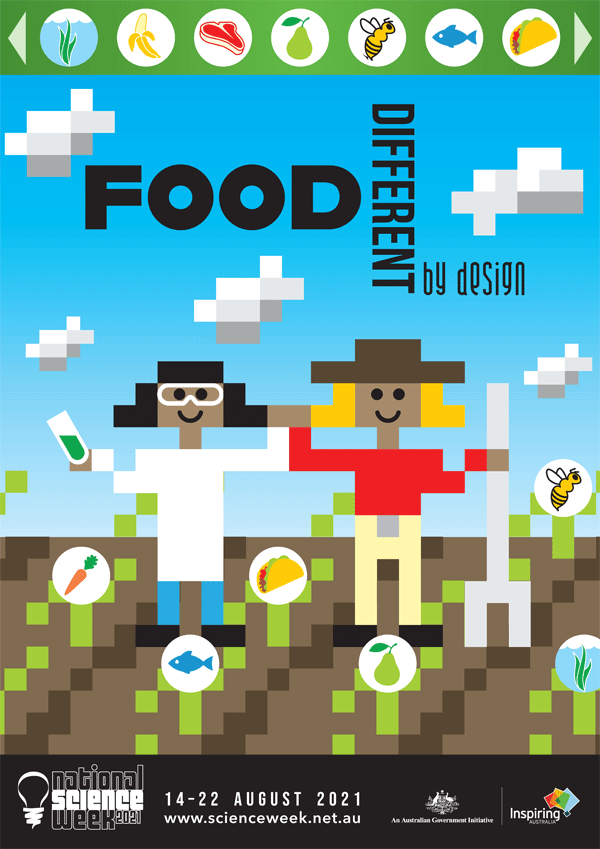 The school theme for National Science Week 2021 is Food: Different by Design. It honors the United Nations International Year of Fruits and Vegetables and the International Year of Creative Economy for Sustainable Development.
The school theme for National Science Week 2021 is Food: Different by Design. It honors the United Nations International Year of Fruits and Vegetables and the International Year of Creative Economy for Sustainable Development.
Teacher Resource Book
The Food: Different by Design teaching resource book (15.3 MB, pdf) covers a broad range of areas in food production and sustainable agriculture, enabling students to explore topics such as biosecurity, food technology and laboratory-developed foods. Scientific development is at the core to the theme, with hands-on projects for students from Foundation to Year 10 to explore.
There's also a matching student journal (4MB, pdf) and a complementary Indigenous perspectives teaching resource book (8.3 MB, pdf).
Food - Different by Design Poster
The school poster is available to download (1.3 MB, pdf) and display in your classroom, lab or school library.
School grants
Congratulations to the schools who received a grant of up to $500. The grants are designed to support teachers and schools deliver engaging STEM events and activities in National Science Week. They are intended to be a contribution to the running of an activity or event in a school, and not be the sole means of support.
The school grant round is conducted by ASTA and the grant pool of more than $100 000 is provided by the Australian Government.
Science Week 2020
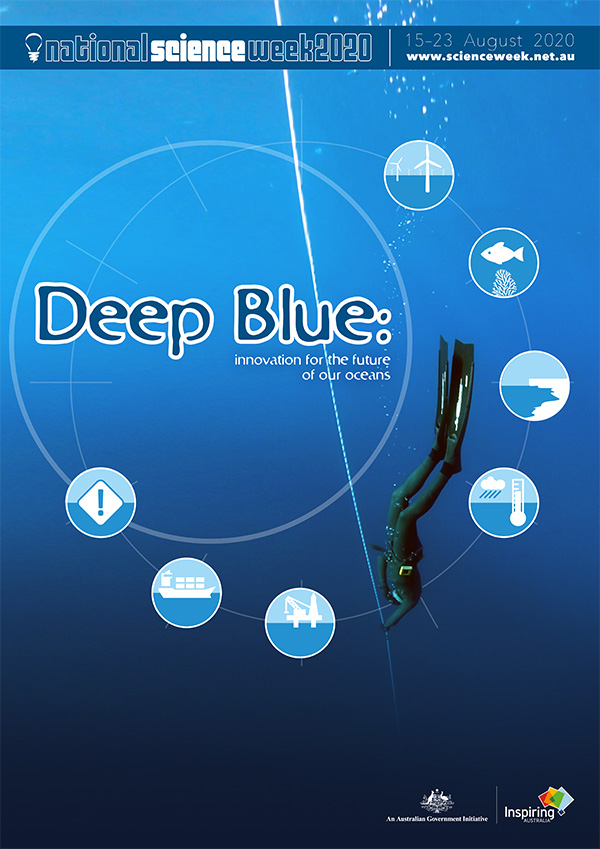 The school theme of National Science Week 2020 is Deep Blue: innovations for the future of our oceans and features the establishment of the Blue Economy CRC.
The school theme of National Science Week 2020 is Deep Blue: innovations for the future of our oceans and features the establishment of the Blue Economy CRC.
With this in mind, the theme embraces the innovative technologies, capabilities and skills needed to achieve economic, environmental and social sustainability of our oceans. It features insights and inquiries into workable solutions that generate healthy oceans, healthy economies and healthy communities.
Teaching Resource Book
The Deep Blue: Innovation for the future of our oceans teaching resource book (11.1 MB, pdf) has lesson plans, cases studies, activity ideas and links to resources for students from Foundation through to Year 10. There’s also a student journal (3.1 MB, pdf) intended for older students to record their ideas, from defining the problem posed on the suggested activities to debriefing the solutions they devise.
Deep Blue Poster
Print and display the Deep Blue poster (562 kB, pdf) in your classroom or school library.
School grants
Grants of up to $500 help to support National Science Week activities in schools. The annual grant round is for all schools (pre-schools to senior secondary) to help them conduct a STEM related activity in Science Week. Applications for school grants closed on 30 April.
Changes to the 2020 School Grants Program due to COVID-19
In consideration of the impact of COVID-19 and the limited ability of schools to undertake normal activities a modified format of school support has been adopted, in direct response to medical advice regarding social distancing requirements.
In place of the usual competitive financial grants selection process, applicants to the school grants program will receive an activity card-based system to use across Science Week to support and encourage student engagement.
Based on ASTA’s highly successful SPECTRA model (SPECTRA = Science Program Exciting Children Through Research Activities), cards have been produced for four different educational groups from Early Years through to Year 10, with curriculum-based topics relating to this year’s Deep Blue theme. All of the activities are designed to be completed either at school or at home (where students are still undertaking home-based learning).
ASTA will issue each participating school with a Science Week bundle, including SPECTRA cards, certificates and badges. Using the cards, students may carry out a range of practical and observational activities, research, experiments and projects. The in-built assessment component can be easily administered by teachers and/or parents, and when the required number of activities have been completed to their satisfaction, they will award the student a National Science Week certificate and badge.
Science Week 2019
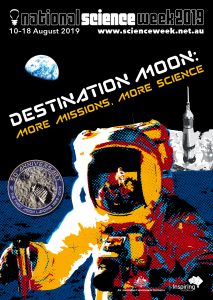 Destination Moon: more missions, more science is the school theme for National Science Week in 2019.
Destination Moon: more missions, more science is the school theme for National Science Week in 2019.
This theme is a way for teachers and their students to discover past missions to the Moon and space programs that have solved some of the seemingly unsolvable problems—and current and future space programs, operations and missions. Many of these use big picture thinking in science to solve problems, and technology, engineering and mathematics to design new solutions. This will help forge our future paths in the areas of space operations, space science, Earth observations, positioning systems and communications.
School Grants
Grants of up to $500 supporting school STEM activities in National Science Week were awarded to 219 schools. The grant round is administered by the Australian Science Teachers Association and funding is provided by the Australian Government.
Teaching Resource Book
The 76 page 2019 Resource Book of Ideas (24 MB, pdf) for National Science Week offers teachers and students the opportunity to investigate the people, space agencies, universities, and science organisations that are all delivering solutions in space science. There are also an Australian Space Science Timeline (6 MB, pdf) and a Student Journal (8 MB, pdf) available to download.
Destination Moon Poster
This high resolution Destination Moon poster (5.5 MB, pdf) is for printing and displaying in your classroom and school library. We've also got a pop-art colouring version (3.1 MB, pdf) of the poster for older children to try.
Science Week 2018
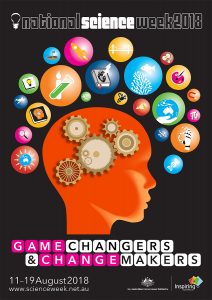 The school theme for National Science Week in 2018 is Game Changers and Change Makers. This could refer to individuals, teams, technologies or ideas - what does it suggest to you?
The school theme for National Science Week in 2018 is Game Changers and Change Makers. This could refer to individuals, teams, technologies or ideas - what does it suggest to you?
In developing the theme and the teaching resource book we took inspiration from three significant celebrations in 2018:
- 200th anniversary of the publication of Mary Shelley’s Frankenstein (genetic engineering, biotechnologies, prosthetics, bionics, genetic modification, brain enhancement and ethics);
- 40th anniversary of the birth of the first IVF baby (genetic engineering, biotechnology, nanotechnology);
- International Year of the Reef (coral reefs and the scientists who study them).
School grants
The successful applicants in the grant round were announced in May. The grant round is administered by the Australian Science Teachers Association.
Teaching Resource Book
The 88 page Game Changers and Change Makers teaching resource book (11.6 MB, pdf) is available to download and print. The resource book has resource ideas and detailed lesson plans for classes from Foundation to Year 10.
Game Changers Poster
You can also download the Game Changers poster (660 kB, pdf) to print and display in your classroom or library.
Science Week 2017
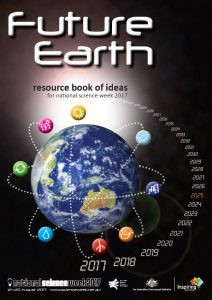 The 2017 National Science Week teacher resource book will focus on Australia’s sustainability science and highlights those issues that are unique to Australia and our region.
The 2017 National Science Week teacher resource book will focus on Australia’s sustainability science and highlights those issues that are unique to Australia and our region.
Future Earth book
The Future Earth teaching resource is available as an interactive online flip book and as a downloadable book (18MB, pdf) that can be printed.
The resource book aim to raise awareness of sustainability science and all of the sciences - social, natural and applied - and encourage positive actions that make a direct contribution to the Earth becoming more sustainable.
Future Earth poster
The Future Earth poster has been created for schools to help them plan their Science Week activities. It includes a listing of highlight events in each state and territory and links to other great science resources. Download and print your own A3 Future Earth poster (4MB, pdf).
Future Earth Initiative
Future Earth launched in 2015 and is a major 10-year international initiative to advance global sustainability science.
Future Earth is a global community of tens of thousands of world-class researchers, projects and institutes brought together around an international research agenda focusing on sustainability science.
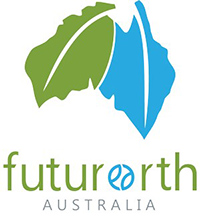 The Academy of Science is developing a project office for Future Earth in Australia.
The Academy of Science is developing a project office for Future Earth in Australia.
Future Earth’s 2025 vision addresses eight key challenges to global sustainability:
- Deliver water, energy, and food for all
- Decarbonise socio-economic systems to stabilise the climate
- Safeguard the terrestrial, freshwater and marine natural assets underpinning human well-being
- Build healthy, resilient and productive cities
- Promote sustainable rural futures
- Improve human health
- Encourage sustainable consumption and production patterns
- Increase social resilience to future threats.
School grants
Successful projects were announced in late May. The grant pool of $90 000 is provided by the Australian Government.
Science Week 2016
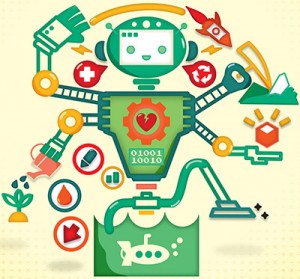 In 2016 we will embrace the ‘Technology' in STEM, in particular autonomous technology, with the National Science Week school theme Drones, Droids and Robots.
In 2016 we will embrace the ‘Technology' in STEM, in particular autonomous technology, with the National Science Week school theme Drones, Droids and Robots.
The theme will centre on the real-world application of autonomous technologies in areas including agriculture, mining, manufacturing, medicine and space and deep ocean exploration. Of course, we will also look at how this technology has transformed our day-to-day lives - from robot vacuum cleaners and lawn mowers to automated pool cleaners.
Schools poster
The theme poster has been sent to every Australian preschool and school, and you can download and print your own copy (2.4 MB, pdf).
Teacher resource book
The Drones, Droids and Robots resource book is available as an interactive online eBook or via download (10 MB, pdf).
School grants
The successful applicants were announced on 16 May 2016.
Science Week 2015
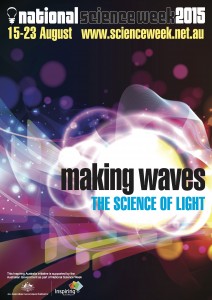 The school theme for National Science Week 2015 is Making waves - the science of light, based on the International Year of Light.
The school theme for National Science Week 2015 is Making waves - the science of light, based on the International Year of Light.
The Making waves: the science of light resource online eBook is available.
The book was prepared by the Australian Science Teachers Association (ASTA) teacher and contains an abbreviated curriculum map of the Australian Curriculum: Science covering years F-10. This has then been used to develop a curriculum map of light topics addressing most content descriptions from the Science Understanding and Science as a Human Endeavour sub-strands.
The book is available as an online eBook or as an 88 page download (12 MB, pdf) that can be printed.
The National Science Week theme poster for 2015 (3.3 MB, pdf) has been sent to all schools.
2015 school grants
Congratulations to the 263 schools that were successful in receiving grants of up to $500 to help them conduct a range and variety of science activities during National Science Week. More information.
Resource Book Archive
Here are all of the other National Science Week teacher resource books created by ASTA, back to the pilot program in 1997. Prior to that, ASTA also produced an annual resource book for Australian Science Week in Schools from 1984-1996.
- 2014 Food For Our Future (1.79 MB, pdf)
- 2013 A Century of Australian Science (2.76 MB, pdf)
- 2012 Energy Evolution (2.37 MB, pdf)
- 2011 React to Chemistry (3.88 MB, pdf)
- 2010 Australian Biodiversity (4.27 MB, pdf)
- 2009 Astronomy (13.2 MB, pdf)
- 2008 Planet Earth (11.1 MB, pdf)
- 2007 Antarctic Science (6.32 MB, pdf)
- 2006 Our Dry Continent (19.9 MB, pdf)
- 2005 Energy Future Challenges (4.35 MB, pdf)
- 2004 Investigating Space (2.67 MB, pdf)
- 2003 Investigating Freshwater (4.04 MB, pdf)
- 2002 Investigating Science in the Bush (5.23 MB, pdf)
- 2001 Exploring Biodiversity (2.94 MB)
- 2000 Exploring Sports Science (17.8 MB, pdf)
- 1999 Exploring Time (15.8 MB, pdf)
- 1998 Exploring Oceans (16.8 MB, pdf)
- 1997 Exploring Flight (15.5 MB, pdf)




